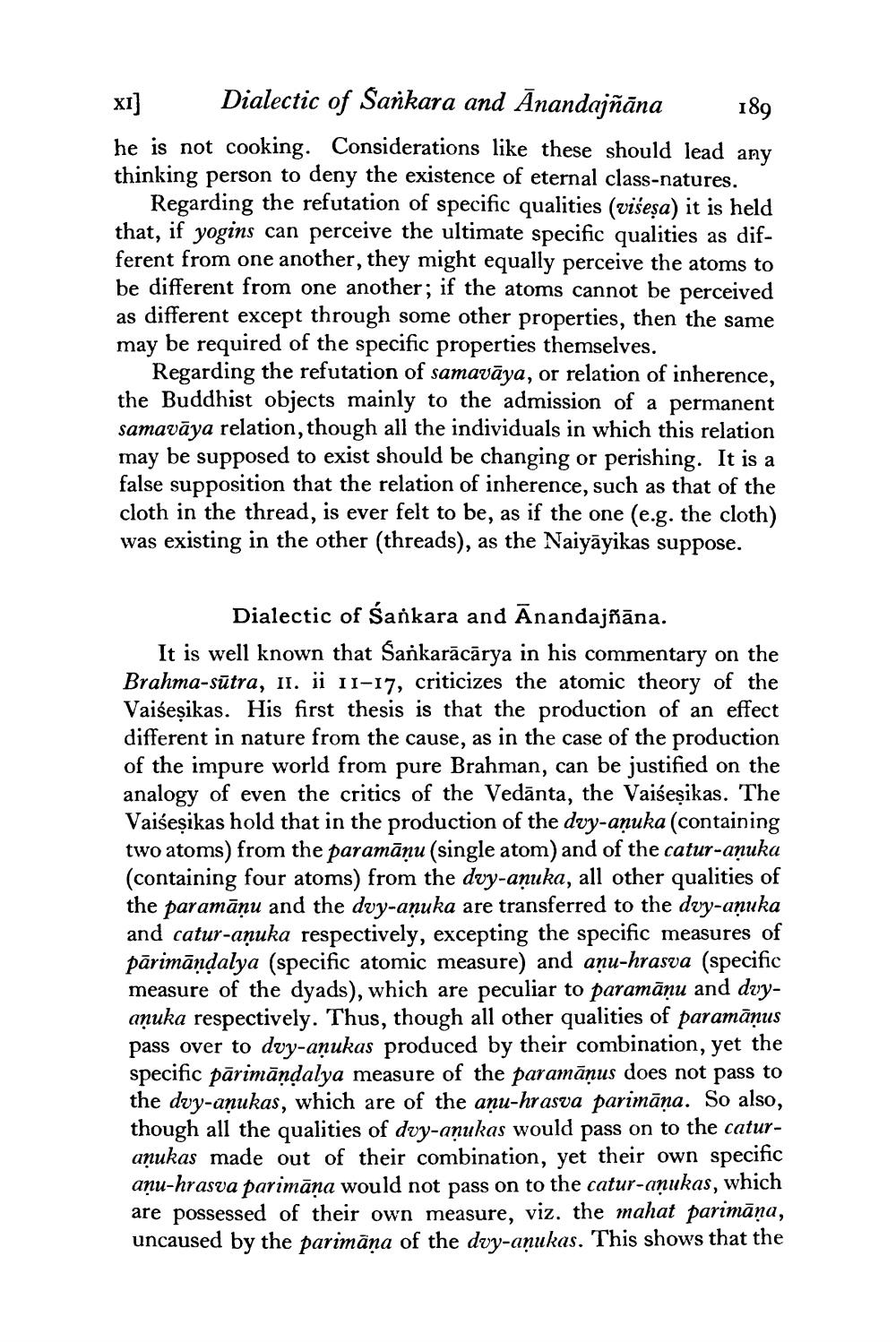________________
XI] Dialectic of Sankara and Anandajñāna 189 he is not cooking. Considerations like these should lead any thinking person to deny the existence of eternal class-natures.
Regarding the refutation of specific qualities (višeșa) it is held that, if yogins can perceive the ultimate specific qualities as different from one another, they might equally perceive the atoms to be different from one another; if the atoms cannot be perceived as different except through some other properties, then the same may be required of the specific properties themselves.
Regarding the refutation of samavāya, or relation of inherence, the Buddhist objects mainly to the admission of a permanent samavāya relation, though all the individuals in which this relation may be supposed to exist should be changing or perishing. It is a false supposition that the relation of inherence, such as that of the cloth in the thread, is ever felt to be, as if the one (e.g. the cloth) was existing in the other (threads), as the Naiyāyikas suppose.
Dialectic of Sankara and Anandajñāna. It is well known that Sankarācārya in his commentary on the Brahma-sūtra, 11. ii 11-17, criticizes the atomic theory of the Vaiseșikas. His first thesis is that the production of an effect different in nature from the cause, as in the case of the production of the impure world from pure Brahman, can be justified on the analogy of even the critics of the Vedānta, the Vaišeşikas. The Vaiseșikas hold that in the production of the dvy-aņuka (containing two atoms) from the paramāņu (single atom) and of the catur-aņuka (containing four atoms) from the dvy-anuka, all other qualities of the paramāņu and the dvy-aņuka are transferred to the dvy-aņuka and catur-aņuka respectively, excepting the specific measures of pārimāņdalya (specific atomic measure) and aņu-hrasva (specific measure of the dyads), which are peculiar to paramāņu and dryaņuka respectively. Thus, though all other qualities of paramāņus pass over to dvy-aņukas produced by their combination, yet the specific pārimāņdalya measure of the paramāņus does not pass to the dvy-aņukas, which are of the aņu-hrasva parimāņa. So also, though all the qualities of dvy-aņukas would pass on to the caturaņukas made out of their combination, yet their own specific aņu-hrasva parimāna would not pass on to the catur-anukas, which are possessed of their own measure, viz. the mahat parimāņa, uncaused by the parimäna of the dvy-anukas. This shows that the




